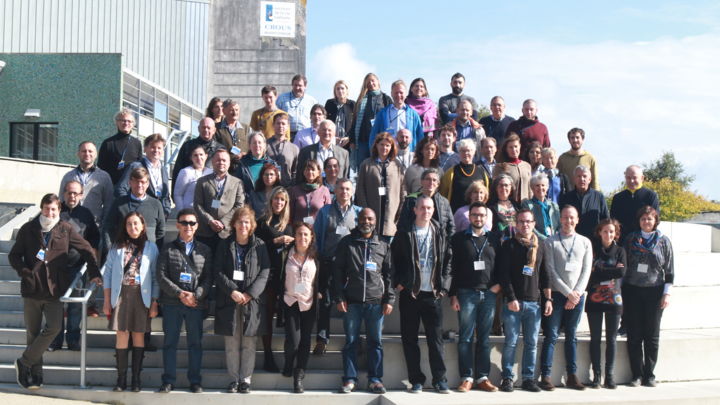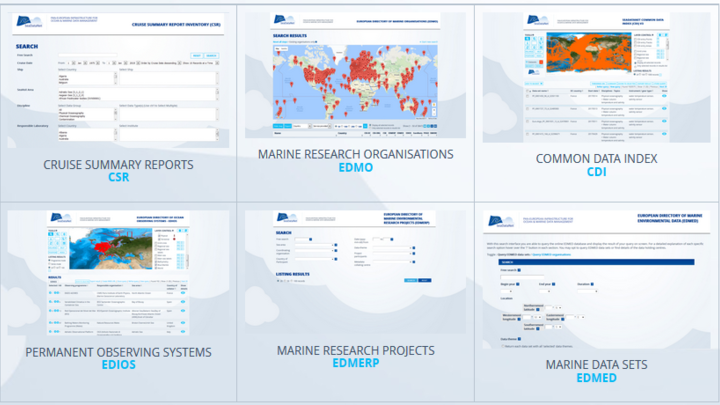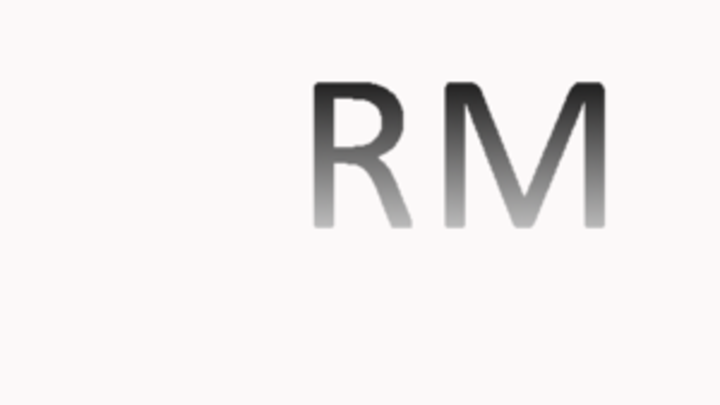CDI
The Common Data Index (CDI) metadata format is based upon the ISO19115 content standard and both its content and XML coding have been upgraded in September 2013 to the ISO19139 schema and made INSPIRE compliant. Also the MIKADO software has been upgraded so that it can work with and produce CDI XML files that are following the upgraded CDI content and XML format. It should be noted that the content upgrading also concerned migrating to the new Vocabularies (NVS2.0) and including a number of optional extensions. Provisions have been made in the MIKADO software to read both the previous and the new CDI XML files and to export both in the new XML format, ensuring upwards compatibility.
More recently (December 2019), activities have been concluded in discussion and cooperation with the INSPIRE team at EU-JRC to update the CDI XML coding in full compliance with the latest INSPIRE ISO19139 metadata schema. This can be validated using the latest version of the new ETF validator of INSPIRE. Whereby one has to select metadata for interoperability as the target conformance class.
SeaDataNet CDI profile of ISO 19139 metadata - INSPIRE compliant
The CDI format is a marine profile of the ISO 19115 metadata content standard. The XML encoding uses the 19139 Schema, which is a standard in the EU INSPIRE Directive Implementing Rules. INSPIRE validation of CDI metadata has always been taken into account from the beginning of the drafting of CDI metadata standard. As a result, the official INSPIRE metadata online validator qualified CDI XML metadata INSPIRE compliant, already back in 2012. However, the official INSPIRE validator was replaced with a new version that unfortunately was no longer fit for validating community metadata profiles such as the SeaDataNet CDI XML. Lately, a third INSPIRE validator has been launched, called ETF, which has many new features, although it is still under active development for adding more functions. In cooperation with the EU-JRC-INSPIRE team solutions were formulated and deployed both in the SeaDataNet CDI schema and the ETF validator to ensure full INSPIRE compliance again for the CDI community profile and its coding.
The CDI metadata content is based upon the ISO 19115 metadata content standard, is supported for many metadata tags by the SeaDataNet common vocabularies and EDMO directory (organisations), and over time extra optional elements have been included for bibliographic, CSR directory (cruise), EDMERP directory (project), and EDMED directory (dataset) references and giving more quality information. This way, the CDI metadata is striving for maximum FAIRness. The FAIR concept relates to “Data and services that should be Findable, Accessible, Interoperable, and Re-usable, both for machines and for people.” The emphasis is on machine FAIRness, which is also a prerequisite for the developments of the European Open Science Cloud (EOSC). The CDI format analyses have been performed by CNR together with MARIS, IFREMER, STFC, BODC and ENEA.
On this web page you will find the latest CDI profile documentation. Furthermore related documentation has been prepared which defines and details the XML schema implementation for this metadata profile, based on the XML schema defined in ISO 19139:2006 TS plus additional definitions and Schematron rules.
Documentation
SeaDataNet CDI profile excel file - content fields and vocabs used:
XML encoding
Official schemas
Valid CDI documents MUST validate against both the XML Schema and Schematron rules published online in this section.
Remarks: The original ISO 19139 Schema consists of a group of XSD's. But this set-up has been altered and the new overall XSD has been created as given above. It has import links to ISO XSDs which are based at the ISO website. In addition the Schematron Rules are needed.
Extension Information (XML)
ISO 19139 - CDI Extension Information
Remarks: This xml file contains machine readable information about the extensions included in the profile; ISO19139 clients can take advantage of this information to correctly edit/visualize CDI metadata.
Offline schemas package
Remarks: Together the 2 schema files given above are sufficient for validating CDI XML entries, but only when on-line. Therefore also a larger offline schema package has been created that can be used for offline use. It should be warned that this version is provided for offline use only. Note that schematron rules may require access to online code lists catalogues and vocabularies.
Samples
This sample is as complete as possible, by including also all the optional metadata elements (e.g. additionalDocumentation, EDMED reference, CSR reference, etc.)
Implementation
The implementation and gradual updating of the CDI ISO 19139 format and Schema in the SeaDataNet CDI service requires also gradual upgrading of related tools and services, such as the MIKADO XML editor, and CDI central portal software. Currently, all central CDI services are up-to-date with the latest CDI schema, while a new version of MIKADO (3.6) has been released which will switch from CDI schema V11 to V12.0.0.
Validation
Validity of CDI documents can be checked with various tools, amongst them:
- Mikado of course is the tool of choice for the SeaDataNet community (new version planned for January 2020)
- Oxygen XML editor v. 19.0
- having support to both XSD schema and Schematron rules
- Oxygen XML editor v. 20.1
- having support to both XSD schema and Schematron rules






